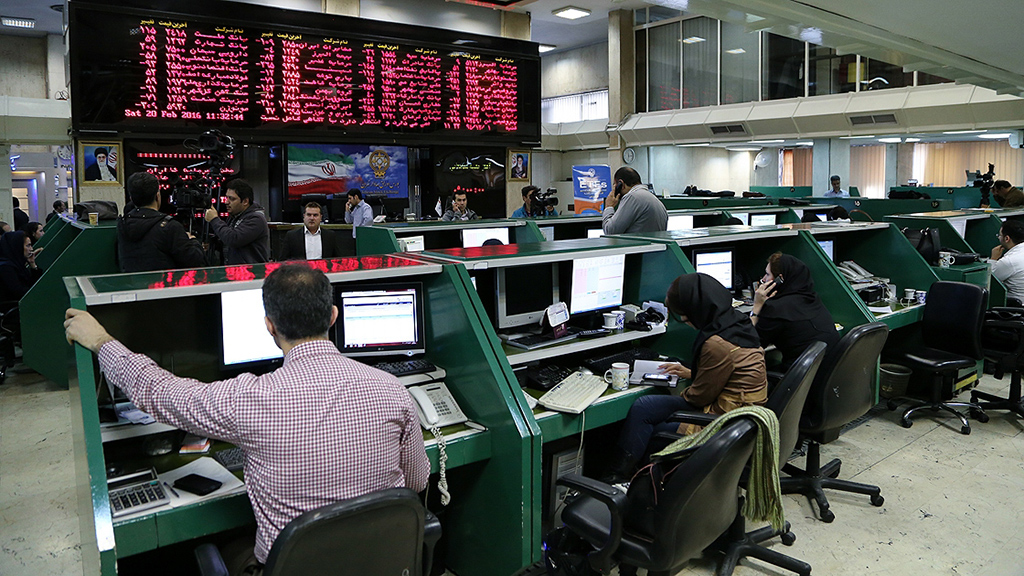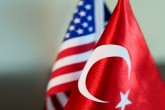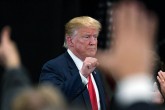The Trump administration continues to violate the basic principles of the international order established by the U.S. itself after World War II because the system no longer serves its interests. Rising global and regional powers, such as India, Indonesia and especially China, are the main beneficiaries of the continuation of the current system. The U.S. has been pursuing paradoxical policies, especially for the last decade.
On the one hand, it claims to be the global hegemon and that there is a unilateral system. It attempts to set the rules, punish any country whose policies contradict American interests and reward those who serve American interests. As an indication of this policy, the Trump administration has been following unilateral policies toward other international actors.
On the other hand, the U.S. does not want to pay for the maintenance of the global American hegemony. It does not appreciate freeloaders and calls on all global and regional powers to contribute to the hegemony. Among others, the U.S. government often calls on European NATO members to increase their military spending and allocate at least 2 percent of their budget on defense expenditures.
Accordingly, the Trump administration, dominated by anti-Iran hawks like Secretary of State Mike Pompeo and National Security Adviser John Bolton, has been following strong anti-Iran policies at the expense of deviating from state traditions and international covenants. For example, President Donald Trump has withdrawn the American signature from the international Iran nuclear agreement signed by the permanent members of the U.N. Security Council and Iran in May 2018. Later, in August 2018 and November 2018, he declared new economic sanctions against Iran.
On April 8, Trump and Pompeo announced that the U.S. government had designated the Iranian Revolutionary Guard Corps (IRGC) as a foreign terrorist organization. This is the first time that the U.S. has labeled another country’s military a terrorist organization. With this decision, as mentioned by Trump, Washington recognizes that, “Iran is not only a state sponsor of terrorism but that the IRGC actively participates in, finances and promotes terrorism as a tool of statecraft.” In retaliation, Iran declared U.S. forces in the Middle East a terrorist organization.
Yesterday, the Trump administration announced that the U.S. would no longer exempt any countries from American sanctions if they continue to import Iranian oil. Stepping up the pressure on Iran will primarily influence the eight remaining major importers of Iranian oil, namely China, India, Japan, South Korea, Taiwan, Italy, Greece and Turkey. Washington asserted that any country that continues to import Iranian oil will be subjected to U.S. sanctions. The U.S. aims to impose a complete oil embargo on Iran and reduce Iranian oil exports to zero.
Washington does not care that the Iran sanctions harm other countries, i.e. Turkey and Iraq. It has threatened any country or international actor interacting with Iran. While some countries, such as India, the second-biggest buyer of Iranian oil, prepare to find alternative sources to make up for the possible shortfall in oil supplies, others such as China and Turkey have expressed their irritation and declared the new American move unacceptable. For these two countries being told whose oil they are allowed to buy is unacceptable. China especially has the capacity to ignore the U.S. sanctions. If China needs and wants to buy Iranian oil, it will continue to do so. It does not matter what measures the U.S. takes.
Similarly, Turkey has rejected the American unilateral sanctions and impositions on how to conduct relations with its neighbors. Foreign Minister Mevlüt Çavuşoğlu explained that the American “decision to end sanctions waivers on Iran oil imports will not serve regional peace and stability.” While Turkey clashes with Iran on many regional issues, it still does not want Iran to be punished by illegal unilateral moves. Turkey is not convinced of the motives of the U.S. policies toward Iran due to the American support for the PKK-affiliated Democratic Union Party (PYD) and its armed wing, the People’s Protection Units (YPG), in northern Syria.
Further polarization and pressure from Washington will only increase regional and global instability. Trump’s anti-Iran moves may even escalate into a regional or global war. The U.S. attempt to drop Iran’s oil exports to zero may force Tehran to take retaliatory steps, including closing the Strait of Hormuz. It seems Washington is keen to use force against Iran. It is the Iranian side who continues to warn about the dangers of escalating regional tension. However, the U.S.’ unilateral policies will not go unpunished by other global powers, including the European countries, because sooner or later these unilateral American moves will greatly damage the interests of other states, and they will be forced to take the necessary measures to protect their national interests – as the U.S. often does for itself.
[Daily Sabah, 24 April 2019]
In this article
- Opinion
- American Hegemony
- CENTCOM
- China
- DAESH
- Daily Sabah
- Democratic Union Party (PYD)
- Donald Trump
- East of the Euphrates
- Europe
- Fight against DAESH
- Foreign Minister
- Global Actors | Local Actors
- Global Power
- Greece
- Iraq
- Islamic Republic of Iran
- Islamic Revolutionary Guard Corps (IRGC)
- Kurdistan Workers' Party Terrorist Organization (PKK)
- Mevlüt Çavuşoğlu
- Middle East
- NATO
- NATO Ally
- Operation Euphrates Shield
- Peace Corridor
- People's Protection Units (YPG)
- PKK - YPG - SDF - PYD - YPJ - SDG - HBDH - HPG - KCK - PJAK - TAK - YBŞ
- Regional Power
- Republic of Korea
- Safe Zone
- Sanctions
- Syria
- Syrian Civil War
- Syrian Conflict
- Syrian Crisis
- Syrian Democratic Forces (SDF)
- Syrian National Army (SNA)
- Syrian National Coalition
- Syrian Opposition
- Syrian Refugees
- Terrorism
- Trump Administration
- Trump’s Syria Withdrawal
- Turkish Foreign Minister
- Turkish Foreign Policy
- Turkish-American Relations
- Türkiye-US Relations
- Türkiye-US Security Relations
- Türkiye's Foreign Policy
- Türkiye's Operation Peace Spring
- Türkiye’s Operation Olive Branch
- U.N.
- United Nations (UN)
- United Nations Security Council (UNSC)
- United States (US)
- US Sanctions
- US Withdrawal from Syria
- US-PKK/PYD/YPG/SDF Relations
- US-Terror Relations
- Vladimir Putin



